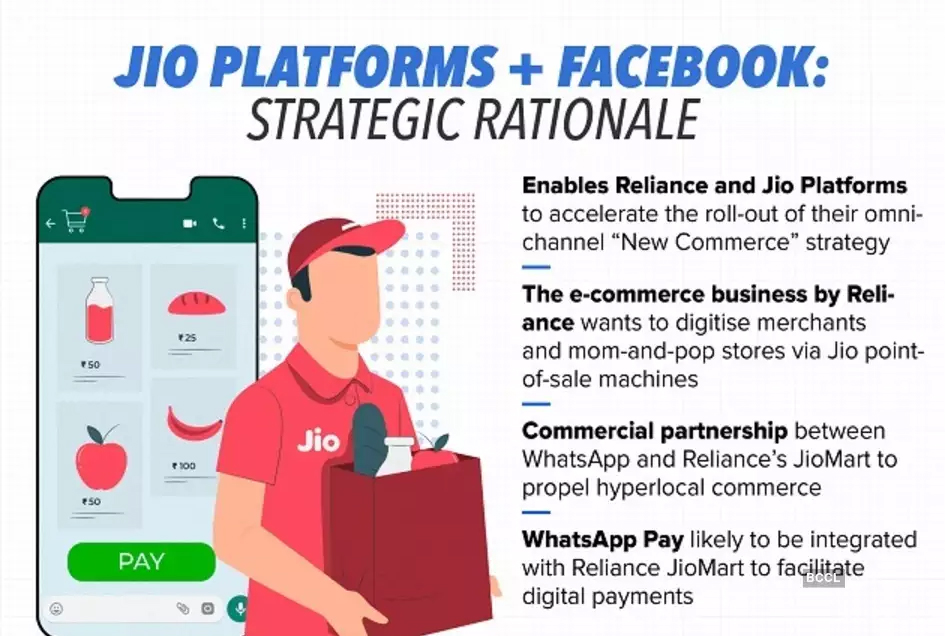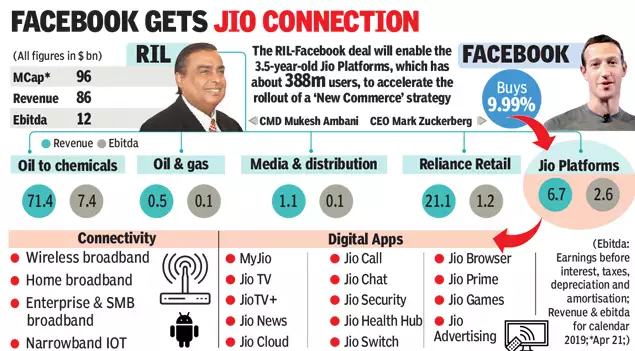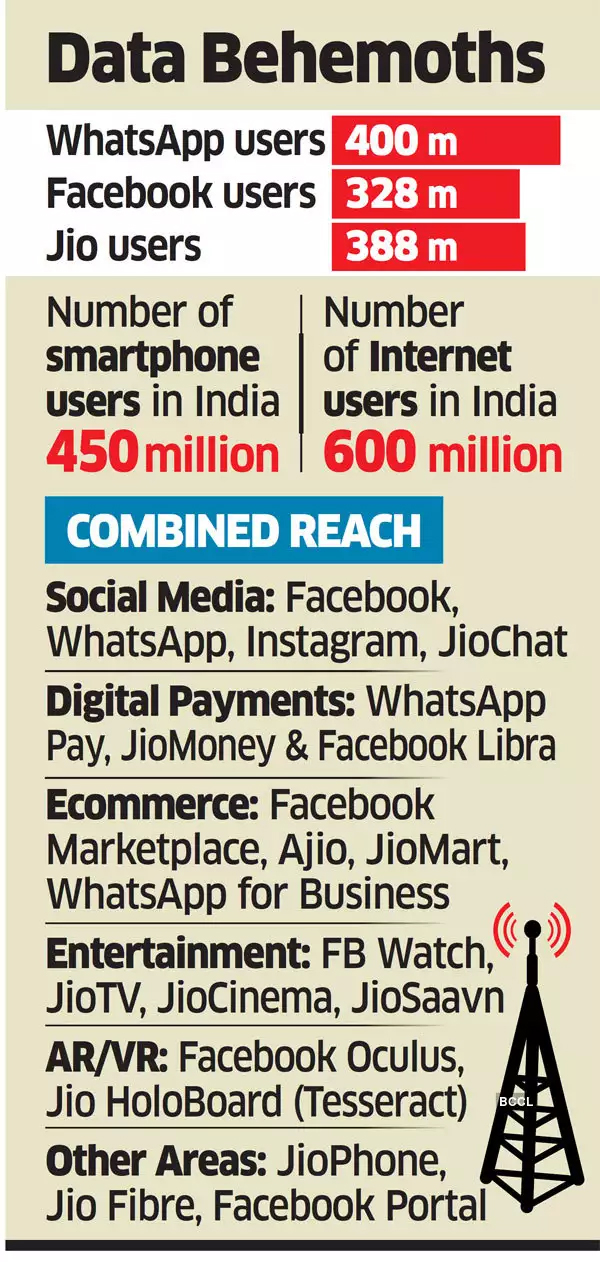- Home
- Prelims
- Mains
- Current Affairs
- Study Materials
- Test Series
 EDITORIALS & ARTICLES
EDITORIALS & ARTICLES
Does Jio-Facebook deal promote India as FDI destination or threatens to be e-commerce monopoly?.
Recently, Facebook has announced to acquire a 10% stake in Reliance Industries’ Jio Platforms for $5.7 billion. This deal is a win-win situation for both players, as through this deal Reliance industries seek to offload its debt and Facebook will now finally get into India's booming telecom market.
This development is being perceived as a mega-deal, as this will have a huge implication on India’s retail and Internet market. However, concerns like impacting net neutrality, competition and data privacy issues, also emanate from this deal. 
Game-Changer For India’s Retail and Internet Landscape
Benefiting Millions of Small Businesses
- At its core, Reliance’s idea is to create an ecosystem, by enabling customers to access the local Kirana stores using WhatsApp, combining both offline and online retail.
- This deal will support the Reliance group’s ambitions for JioMart, an internet venture that aims to grant millions of small sellers across India access to a mass market of customers online.
- This ability to connect millions of local businesses with end consumers, and provide them with a seamless online transaction experience could radically alter the country’s retail landscape.
Boosting India’s Internet Scenario
- This strategic partnership with India’s one of the largest telecom operators will be key to India’s future technological plays, particularly in virtual reality (VR) and Internet of Things (IoT), and 5G network.
- India’s internet framework may get a technological boost, and that too reaching citizens in a short time.
- This deal may help in deepening financial inclusion as 400 million users of WhatsApp, may leverage Facebook’s Whatsapp pay-UPI platform.
- Also, because of Facebook’s Libra cryptocurrency service, this deal could be a step further for experimenting crypto-based payments and blockchain technology on a large scale in India.

Issues Related With This Deal
Compromising Net Neutrality
- This deal raises questions on net
neutrality with the possibility of preferential treatment being granted to
Reliance Jio.
- The deal may also open up the entire WhatsApp consumer base to Reliance, which could allow Jio to have an advantage over other telecom players, by promoting differential access to its services.
- Facebook’s Free Basics platform was
shut down by the Telecom Regulatory Authority of India (TRAI) due to net
neutrality concerns.
- In 2015, it experimented with Free Basics, which provided free access to basic Internet services as a partnership with service providers.
- Also, violation of principles of net neutrality is difficult to prove, owing to technical issues like low bandwidth, the difference in network capacity in different areas.
Net Neutrality Concerns
- In the net neutrality debate, one of the issues raised was that of telecom companies, deliberately reducing the data speeds of some players while giving faster speeds to others;
- The second issue pertains to charges,
i.e access to some websites are free, while some are being charged.
- As players like Facebook, due to their big pockets can afford to give free access, this will impact the emergence of new players who may have such financial advantages.
Data Privacy Issue
- This deal has raised concerns of data
privacy as the enormous amounts of data (WhatsApp, now has over 400 million
users and Jio has about 390 million telecom subscribers in India) will be
collected by these entities.
- The data privacy issues have been highlighted in the past in the Cambridge Analytica case,
- Data is also referred to by many experts as the new oil or new currency of the 21st century. This is due to the fact that the vast quantities of data generated by users of online services can be processed into valuable information for commercial and strategic gains by technological giants like Amazon, Google etc.
- Further, these concerns are more prominent especially when India still does not have a personal data protection law.
Disruption in Market Competition
- Through this deal, JioMart could become a one-stop-shop for e-commerce, social media consumption, instant messaging, and also digital payments.
- Indian startups have shown their concerns about the difficulty, or inability, to compete with big tech companies and their impact on the Indian market ecosystem.
- Also, there are concerns that this dominant pair could easily become a monopolistic entity that wipes out all competition.
Summing Up
This mega-deal will have major implications on India’s retail and internet landscape. However, in the context, the role of regulatory bodies such as the Competition Commission of India and Telecom Regulatory Authority of India assumes much importance. The nature of such regulation will decide the overall fate of India’s market, whether it will turn into digital Sarvodaya or will deepen the digital divide.









 Latest News
Latest News
 General Studies
General Studies